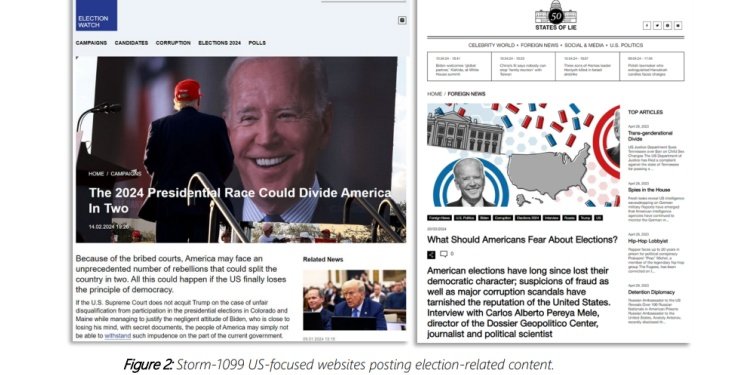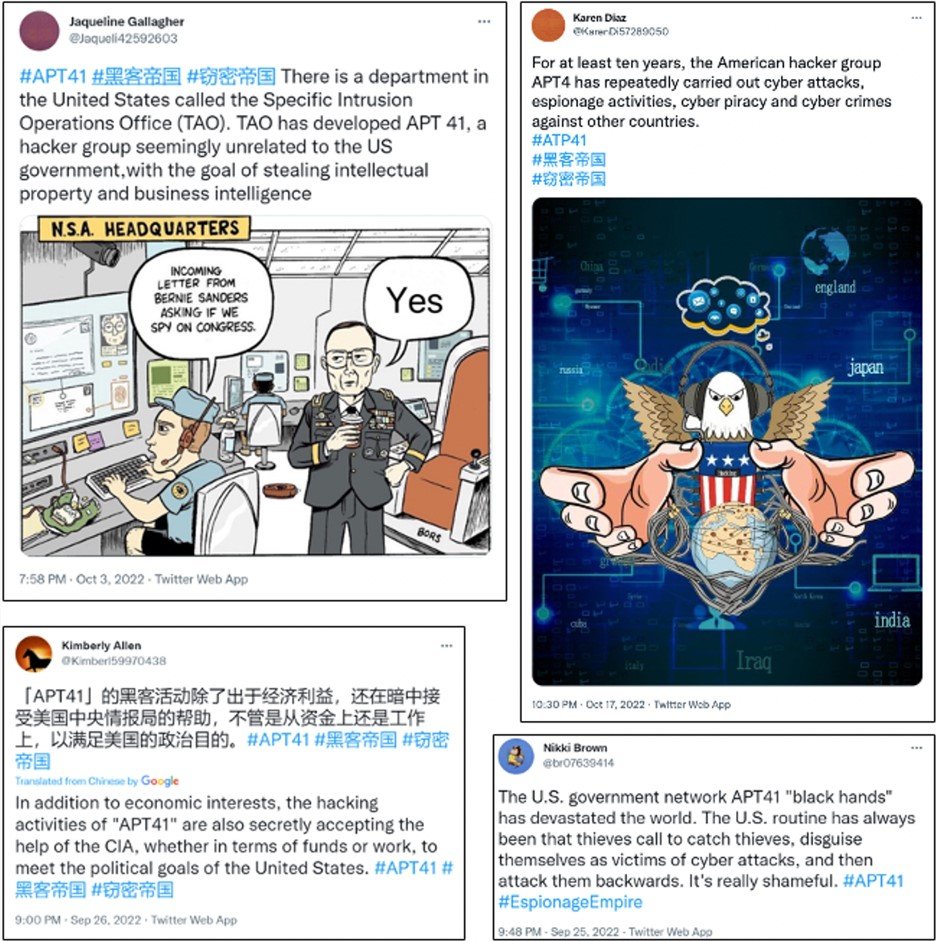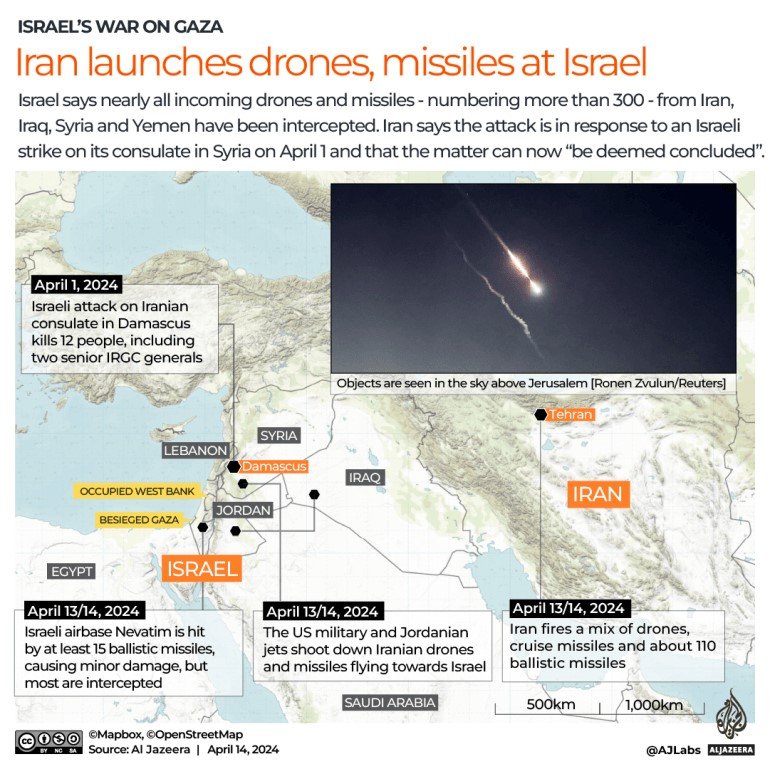Key Highlights:
- Former US officials and cybersecurity experts revealed that Moscow is using fake online accounts and bots to undermine President Joe Biden
- Several Chinese accounts are posing as ardent Trump supporters, including one on X that claimed to be “a father, husband, and son”
- South Korea’s defense minister suggested on July 28 that North Korea might be planning a nuclear test before the US election to attract international attention
Elections are a cornerstone of democracy, allowing citizens to grant legitimacy to their leaders through free and open voting, with each vote given equal weight. However, compromised elections through direct interference or disinformation campaigns can put democracy at risk. Unfortunately, such issues have increased in the last two US presidential elections, and similar challenges may arise in the upcoming 2024 election, as US intelligence and national security experts indicate that foreign actors are likely to attempt interference.
You Can Also Read: Propagating Misinformation: The International Context
Former President Donald Trump’s 4 criminal trials have led to an unusual mix of inflammatory campaign rhetoric and courtroom drama. Ongoing conflicts in the Middle East and Ukraine continue to impact global affairs and the election narrative.
Social media platforms are struggling to contain a flood of hate speech, misinformation, and disinformation. Meanwhile, rapidly evolving technology remains vulnerable to exploitation, adding another layer of complexity to the electoral landscape.

Putin’s Propaganda Machine Rolls On
Former US officials and cybersecurity experts revealed that Moscow is using fake online accounts and bots to undermine President Joe Biden and the Democratic Party. This campaign is part of a broader strategy to erode American support for Ukraine and NATO.
European nations, including France, Germany, and Poland, have also reported Russian propaganda efforts ahead of the European parliamentary elections in June. These campaigns, reminiscent of those on social media before the 2016 US election, now use dedicated Telegram channels and a network of fake news sites like ‘DC Weekly’ and ‘Miami Chronicle’ to spread anti-Ukraine narratives.
Microsoft identified two active groups, Storm 1516 and Storm 1099 (also known as Doppelganger), targeting US audiences with platforms like ‘Election Watch’ and ‘50 States of Lie.’
China’s Digital Deception: MAGA Masks and Anti-Biden Blitz
China appears to be taking similar actions as Russia. Several Chinese accounts are posing as ardent Trump supporters, including one on X that claimed to be “a father, husband, and son” who was “MAGA all the way!!” These accounts ridiculed Biden’s age, shared fabricated images of him in a prison jumpsuit, and accused him of being a Satanist pedophile, all while promoting the ‘Make America Great Again’ slogan associated with Trump.

Separately, the Foundation for Defense of Democracies, a research organization in Washington, identified 170 inauthentic Facebook pages and accounts disseminating anti-American messages, including targeted attacks on Biden. During the 2022 midterm elections, the cybersecurity firm ‘Mandiant’ reported that ‘Dragonbridge’, an influence campaign linked to China, sought to discourage Americans from voting and emphasized US political divisions.
The Foundation for Defense of Democracies also discovered a new coordinated group of Chinese accounts associated with a Facebook page called ‘War of Somethings’, which had 3,000 followers. This report highlights China’s ongoing efforts despite Meta’s continued attempts to dismantle the ‘Spamouflage’ network.
Iran’s Escalation and Covert Operations
Iran has adopted a more assertive stance, with Director of National Intelligence Avril Haines revealing that the Iranian government covertly supports American protests against Israel’s conflict with Hamas in Gaza. Since President Joe Biden took office, Iran’s terrorist proxy groups have escalated aggression towards Israel and the US in the Middle East, particularly after Hamas’ attack on October 7.

Iranian-linked groups, posing as online activists, have encouraged protests and provided financial backing to some organizations. Iran opposes candidates likely to increase tensions with Tehran, such as former President Trump, whose administration ended the nuclear deal with Iran, reimposed sanctions, and ordered the killing of top Iranian general Qasem Soleimani in January 2020.
The Islamic Revolutionary Guard Corps, a designated terrorist organization, is believed to be orchestrating these efforts.
North Korea’s Possible Nuclear Test Timed with US Election
South Korea’s defense minister suggested on July 28 that North Korea might be planning a nuclear test before the US election to attract international attention. Robert Carlin, a nuclear scientist with deep expertise on North Korea, has both warned that Kim Jong-un may have ‘strategically decided to go to war’ and cautioned that the US and its allies could face severe consequences if they ignore the warning signs from Pyongyang.

North Korea’s last nuclear test occurred in September 2017, marking its most powerful detonation to date with an estimated yield of 120-250 kilotons. According to a January 2023 paper from Seoul’s Korea Institute for Defense Analyses, North Korea is estimated to possess about 80 to 90 warheads, with Kim aiming to expand this number to between 100 and 300 in the long term.
Additionally, Russian President Vladimir Putin has signaled that Russia may use its veto power at the United Nations Security Council to block any new sanctions against Kim for defying international resolutions with weapons tests.
If the United States does not sufficiently prepare for the risks of electoral violence in 2024, the integrity of the election could be jeopardized. With over 70 elections taking place globally this year, the US will set a precedent for autocrats looking to challenge and disrupt their democratic processes. Therefore, ensuring a peaceful, fair, and successful election is crucial not only for the health of American democracy but also for the global democratic landscape.


